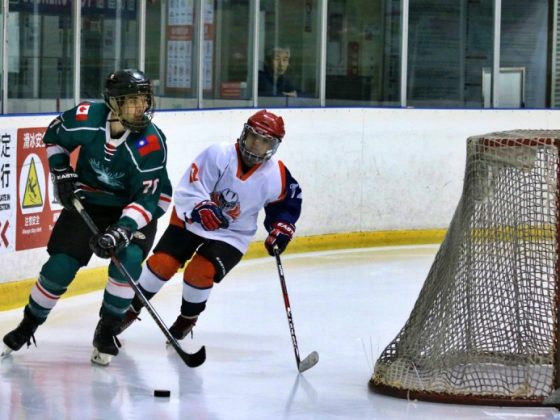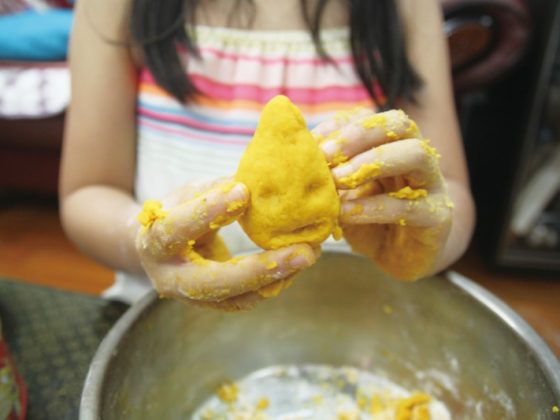What is Brazilian JiuJitsu (BJJ)?
Brazilian JiuJitsu (BJJ) has become a worldwide phenomenon since its explosion onto the martial arts scene through the Ultimate Fighting Championship (UFC) in the 90’s. And thanks to the continued rise of the UFC and the superstars it spawns, it is pretty difficult to ignore, even for non-martial artists.
Famed for giving smaller combatants a fighting chance against stronger opponents, it has become a staple in Mixed Martial Arts (MMA) training which seeks to blend all styles of fighting in order to develop the most well-rounded fighters.
With its roots in Japanese Judo, BJJ focuses on ground fighting by employing joint locks and choke holds to force one’s opponent into submission. This is the ground game of MMA.
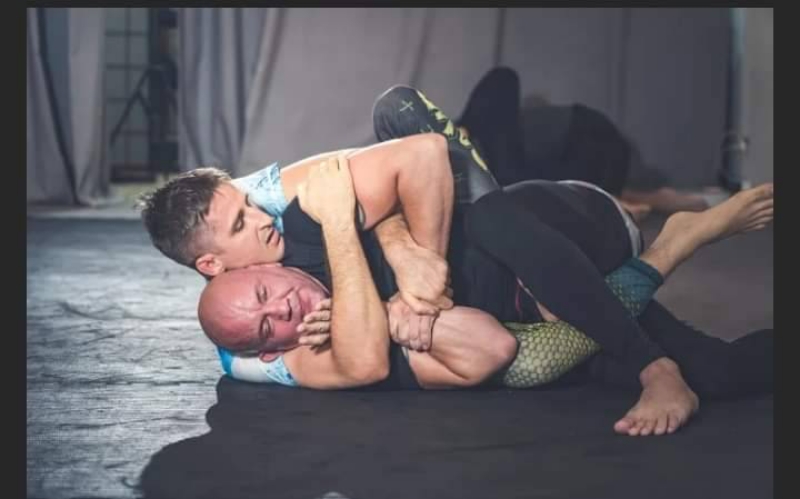
Typically, BJJ is divided into two categories: gi and no-gi. A gi is the traditional Japanese martial arts attire and no-gi style is what’s seen in MMA. The main difference between the two is that in a gi fight, the gi itself can be gripped and even used to administer chokes.
No-gi is generally touted as being more practical in real life situations because people don’t tend to walk down the street wearing gis. Purists may disagree about what is real JiuJitsu.
| About the Auther: Nathan Ray |
| Nathan Ray, an Aussie who resides in Taipei with his family for over five years. Though a beginner to BJJ, Nathan is a lifetime athlete who believes in self-challenging and is into all kinds of atypical sports. His current ambition is to promote the Human Movement Project, a lifestyle that combine physical and mental training to explore the possibility of lives. (Know more Nathan: Moving Mountains: An Australian Hiker Moves in Taipei) |
What’s the appeal?
Due to BJJs overwhelming popularity and practical usage, BJJ communities have sprung up the world over. Taiwan is no exception and most of the major cities have a thriving BJJ scene. With Taiwan being a comparatively small country, local schools can compete often, allowing the national community to continually build.
One unique factor in BJJ compared to other martial arts, is the nature of the sparring practice. Because of the absence of strikes, the potential for injury is dramatically reduced, though never eliminated. Another unique feature is that when a fighter is in trouble it is upon themselves to tap and terminate the match. This means that they can spar with full intensity more often, almost matching competition level. And as mentioned before, brute strength is less of a factor in BJJ and the most skilled will prevail more often than not.
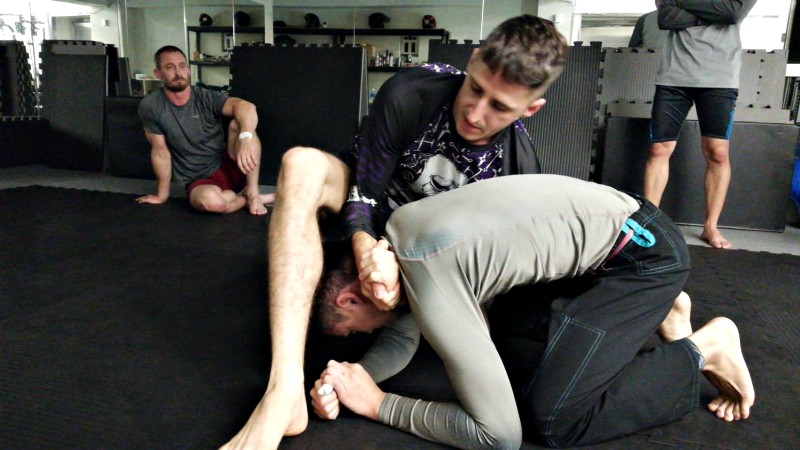
Then there is the social aspect. Generally speaking, the community that builds around martial arts is profound and fundamental to its existence. Rarely is it as brutal as it is portrayed from the outside. Quite the contrary in fact. Respect and etiquette are paramount and any violation of these values is swiftly reprimanded. And BJJ is no different. Those you sweat with and suffer with become like family and you genuinely seek to protect one another. Combine these values with schools internationally and you have a staggering global community where you will always be able to find teachers, training partners, friends, or a home.
The constant and extremely close contact may also have something to do with it.
The Taiwan BJJ Scene
Due to the ubiquitous nature of BJJ, the scene in Taiwan has a large expat presence. There are fighters from every walk of life adding their own unique flavor to the community which is a very exciting benefit which will help elevate the community as a whole.
I am very much a novice when it comes to BJJ. I have only attended a handful of classes taught by an American friend of mine. And basically, I just get choked constantly. It’s much more fun than that sentence makes you think!
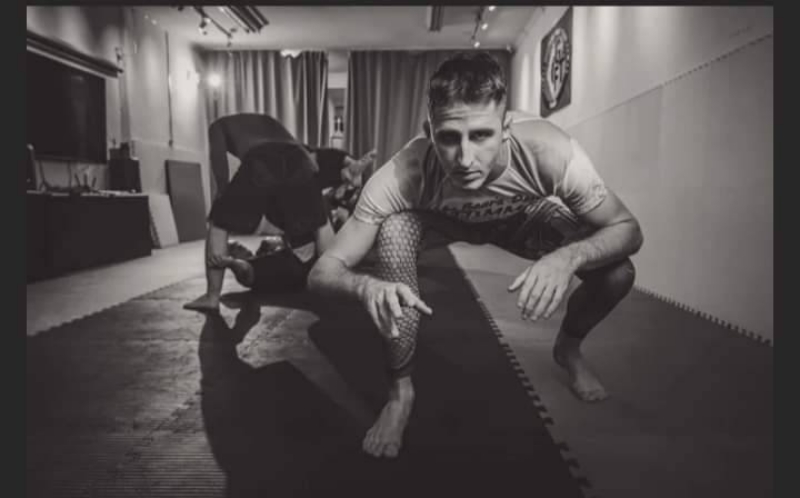
In the beginning of May (‘21), there was a local competition held in Hualien, the beautiful coastal town in eastern Taiwan. One of my friends decided to compete in the beginner division so I figured I’d have a crack. I too sought to experience the real side of BJJ.
Competition is a true test of your ability and an opportunity to be taught many lessons in a very short period of time.
It was your typical humid spring day in Taiwan.
And there we were, a bunch of mad men determined to strangle each other, cooped up inside a tin shed with no air conditioning. First up was the kids division and the adults gi division. By the way, kids rolling is damn adorable.
Next up was the no gi division, our time to roll.
I was nervous for the hours leading up to that moment. Not uncontrollably, but my mind wouldn’t stop putting out these stupid thoughts. They weren’t concerns of pain or defeat, but rather looking like a fool and embarrassing myself. Will everybody laugh at me?
(Note: Check out Nathan’s match from 09:57 to 17:00)
This couldn’t be more wrong. When you’re the spectator, you never think that, you feel nothing but respect for the warriors in the arena. The bravery it takes to step out onto the mats to confront an opponent before a crowd is a massive challenge in itself. Let alone winning!
“FIGHT!” shouted the referee. All those thoughts, all the eyes watching, the immense heat, all vanished instantly. It was only him and I, nothing else. Six long minutes of intense combat ensued.
Then it was over as quickly as it had begun.
Somehow I managed to emerge victorious. I won by points, meaning there was no submission but I was declared the most dominant. Later he and I had a good chat and I found out it was his first competition too. We both felt honored.
For my second round I was pitted against the fighter who ultimately won our division. I managed to stay in the fight the full six minutes but he bested me with points. He absolutely deserved it, he was the most skilled out of all of the beginners. I was glad to have faced the best and survived.
As the competition drew to a close, everyone started to mingle more and the pre-fight nerves had given way to fatigue and camaraderie. Nothing but smiles, laughs and high fives. Some guys even broke off to teach one another where the other made mistakes. That’s truly something remarkable to see. Genuine humility and the desire to help another. That’s one of the core tenets of real martial arts. If you are there for the wrong reason, you will eventually be found out. But if you enter with a true desire to confront your own weaknesses and grow, you will be treated with respect and as an equal.
A little sore and very weary, I left my first BJJ competition with a smile. Grateful for being welcomed so warmly and grateful to all who made it the experience that it was. To me, this is why JiuJitsu is affectionately known as the Gentle Art.
Words by Nathan Ray
Photos by Nathan Dumlao, Nathan Ray
What Kind of Sports are you Looking for?
- Cool Ice Hockey in a Hot, Hot Land: The Taipei Expat Hockey Community Welcomes You
- Whole World Going Crazy for Dragon Boats! Riding Wind & Wave with Taipei’s Black Tide Dragon Boat Team
- Breaking into the Mainstream: Meet the Spanish B-boy Helping to Grow Hip-hop Dance Culture in Taipei
- Cycling in Taiwan – East Taiwan by Eleven and Nine


